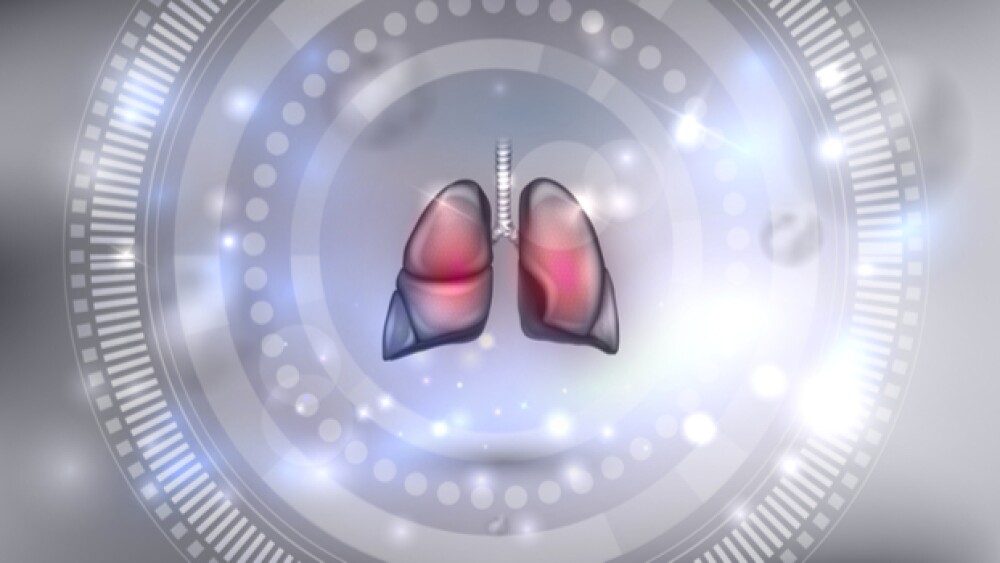Atlanta-based Celtaxsys reported results from its Phase II EMPIRE-CF clinical trial of acebilustat for cystic fibrosis (CF), putting a positive spin on what looks to be a failed clinical trial.
Atlanta-based Celtaxsys reported results from its Phase II EMPIRE-CF clinical trial of acebilustat for cystic fibrosis (CF), putting a positive spin on what looks to be a failed clinical trial.
The company notes in its statement that in the 200 patient trial, the drug “demonstrated clinically meaningful improvements in pulmonary exacerbations, both reducing the frequency of pulmonary exacerbations (PEx) and increasing time to next exacerbation over 48 weeks of therapy.”
Part of the problem with that statement is that it wasn’t the goal of the trial. The primary endpoint of the trial was the classic measures of FEV1 from baseline, or forced expiratory volume in one second. It’s rather deep into the third paragraph of the statement before Celtaxsys says, “No difference in lung function, as measured by the primary endpoint of FEV1 percent predicted (FEV1pp), was observed in acebilustat-treated patients compared to placebo-treated patients over 48 weeks of treatment. Additionally, FEV1pp response did not correlate with PEx rates.”
In other words, the clinical trial flopped, and the company is trying to shine a rosy light on it by focusing on what it’s calling “clinically meaningful improvement in pulmonary exacerbations.”
The company reported a “19 percent reduction in PEx and a 22 percent reduced risk in progressing to first PEx versus placebo.” In addition, in analyzing a subgroup of patients, some did even better. The company didn’t release the p-values, which is a way of testing whether a hypothesis is valid. Celtaxsys indicates it plans to save those values for a presentation at a future conference, although when pressed, the company did indicate that, “The reduction in the rate of pulmonary exacerbations and increased time to first PEx reported are numeric reductions for patients treated with acebilustat, not statistically significant.”
A more accurate summary of the company’s trial, at least based on the very limited data presented, is that the trial failed to meet its endpoint—did not improve lung function—but did show signs of reducing a key symptom. However, it does not appear that those key symptom reductions were statistically significant, although the company calls them “clinically meaningful.”
Stuart Elborn, professor of respiratory medicine at Imperial College, director of the Adult CF Centre, Royal Brompton Hospital London and professor of respiratory medicine at Queen’s University Belfast, stated, “I am encouraged by the data from this trial showing that acebilustat-treated patients had reduced frequency of pulmonary exacerbations, particularly as we recruited patients who had exacerbations in the year prior to the study entry and therefore at high risk of new exacerbations. It was also interesting to see that a higher proportion of acebilustat-treated patients remained exacerbation free during the study compared to placebo. These data suggest that anti-inflammatory therapy effectiveness may be better assessed using clinical events such as pulmonary exacerbations. Pulmonary exacerbations, which are a clinical marker of unbridled lung inflammation, are significant events leading to acute decompensation and chronic decline of lung function and are strongly related to reduced survival. Given this, acebilustat has the potential to help protect patients from the progressive and irreversible damage that is associated with CF.”
The company’s chief executive officer, Greg Duncan, told Reuters, “The company is considering private financing, a public offering and possible financial support from the Cystic Fibrosis Foundation ahead of a late-stage study set for the second half of 2019.”
Regulatory approval would typically be based on proving the drug’s effectiveness in either reducing pulmonary exacerbations or improving lung function. The company suggests its next trial will probably focus on pulmonary exacerbations.





